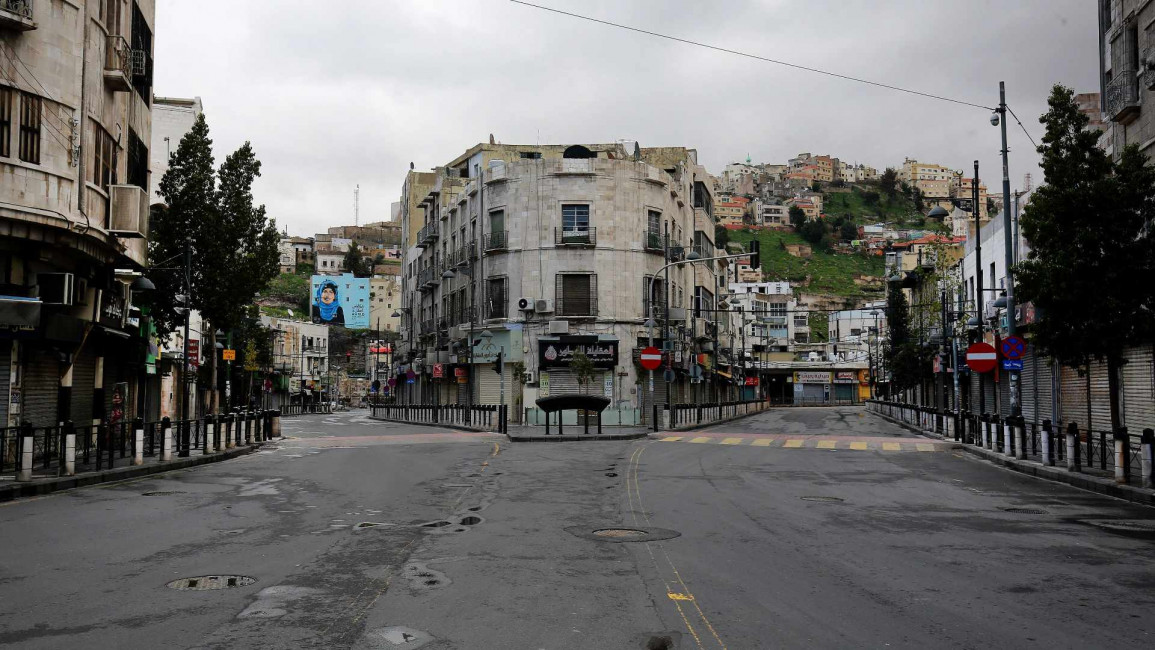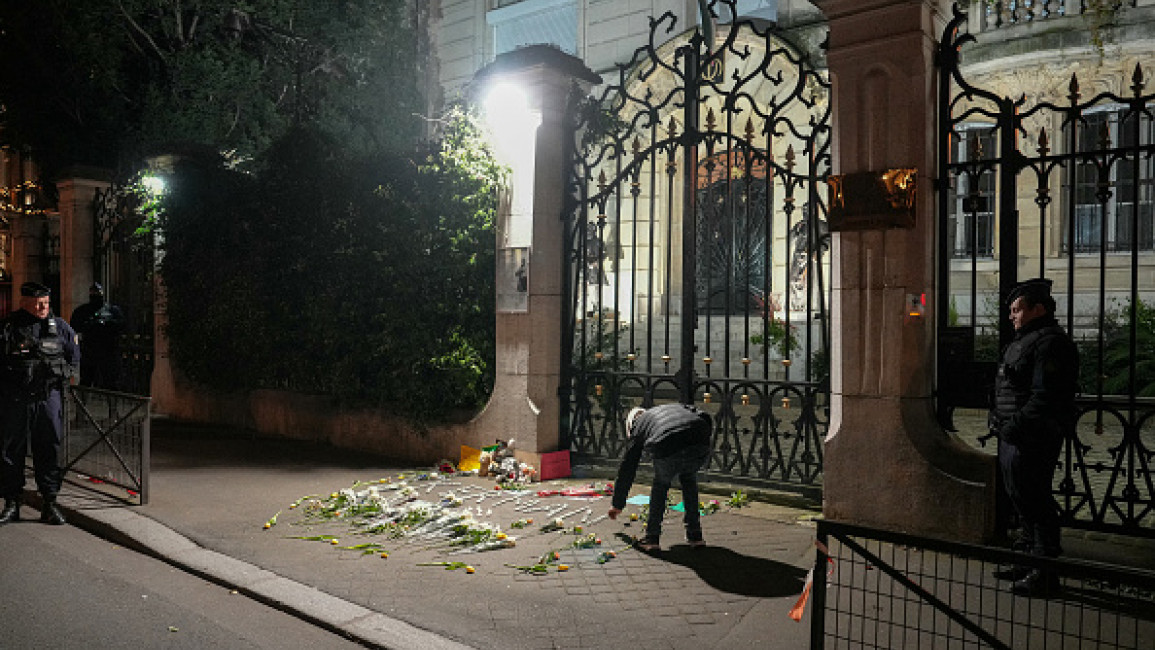Jordan rolls out electronic bracelets trial amid concerns over potential second coronavirus wave
The trial period, which started on Monday, will be used for a limited number of people, Director of the Coronavirus Crisis Management Cell, Brigadier General Mazen Al-Farraya said.
Authorities are still working on the technicalities of the bracelet and it will not yet be imposed as an official measure for all Jordan citizens.
"The use of electronic bracelets is new and rolling it out to the general public will require a successful first experiment," media spokesman for the National Committee for Epidemiology, Nazir Obaidat told Al-Araby Al-Jadeed.
The aim of the bracelet is to ensure that the public commits to official coronavirus quarantine measures, including social distancing, the official continued.
He warned that despite Jordan managing the health crisis so far, there is the potential for a second wave of Covid-19 in the kingdom.
Twitter Post
|
Jordan's Health Minister Saad Jaber announced on Wednesday that 300 electronic bracelets will be distributed in the initial phase of the trial.
Jaber had previously announced the purchase of 10,000 electronic bracelets to monitor returning students and ensure that suspected or confirmed coronavirus cases remain in self-isolation at home.
The minister of health called on Jordanians to cooperate with the investigation teams, noting concerns by some citizens who had refused to be tested.
Many Jordanians are struggling to make ends meet after the government imposed one of the toughest lockdowns in the world due to the coronavirus epidemic, the UN has said.
Some businesses have re-opened after a nationwide lockdown was announced on 20 March, leading to a complete freeze on business activity in the country.
Jordan had already been rocked by economic challenges before the tough curfews were enacted, but the situation now for businesses looks even grimmer, Sara Ferrer Olivella, resident representative of UNDP Jordan, told Reuters.
"Many businesses were not doing well even prior to the crisis, similarly many families have little savings left to cope with income losses due to lockdown measures," Olivella told the agency.
Jordan had already seen sluggish growth of around two percent before the lockdown began, according to the IMF, but now the WTO expects the kingdom's economy to shrink by 3.5 percent this year.
Although Jordan has managed to control the spread of the virus, the closure of businesses and job losses will affect all classes in the kingdom.
Unemployment is expected to rise by 19 percent this year while this figure could increase further with Jordan experiencing its first contraction since 1990.
A reduction in remittances from Jordanian workers in Gulf states could also have a negative impact.
Read more: Ancient Petra a ghost town as pandemic hits Jordan tourism
A UNDP survey at the height of the lockdown said that two-thirds of Jordanian families had less than one week of financial resources, while more than three-quarters predicted the curfew would have a "long-lasting" impact.
Jordan's lockdown saw people confined to their homes and all businesses and trade shuttered. The country has confirmed 1,042 cases of the novel coronavirus, which has also claimed the lives of 9 people so far.
Jordan has also been financially hit by turmoil in neighbouring countries such as Iraq and Syria, while the tourism industry was also affected by a series of terror attacks.
Agencies contributed to this report.
Follow us on Facebook, Twitter and Instagram to stay connected



